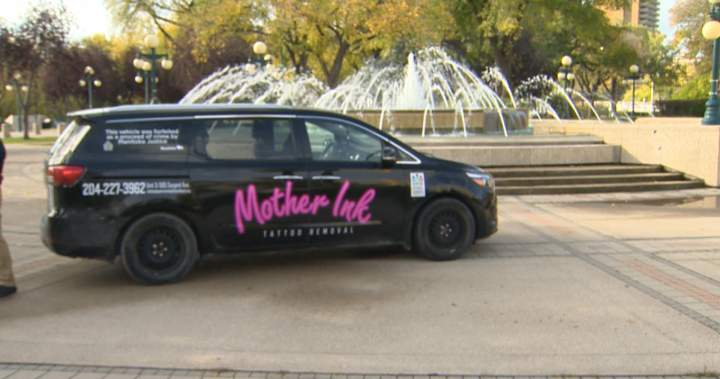In a groundbreaking initiative that transforms symbols of a troubled past into pathways toward a better future, Manitoba has unveiled a specialized tattoo removal program targeting former gang members seeking to rebuild their lives. The program, launched this week in Winnipeg, aims to eliminate visible gang markings that often create barriers to employment, housing, and social reintegration.
The initiative received a significant boost when Manitoba Justice gifted a specialized vehicle to facilitate mobile tattoo removal services, allowing the program to reach vulnerable individuals across the province, including remote communities. The vehicle was acquired through proceeds of crime funding—a poetic justice that repurposes assets once connected to criminal activity to help those escaping that very lifestyle.
“These tattoos aren’t just ink on skin; they’re anchors to a past many are desperately trying to leave behind,” explains Dr. Mira Sanderson, lead dermatologist with the program. “When someone walks into a job interview with visible gang markings, they’re often judged before speaking a single word.”
The program offers more than just tattoo removal. Participants receive comprehensive support including employment counseling, housing assistance, and mental health services through a network of partner organizations focused on reintegration into society. The holistic approach addresses the complex challenges faced by those leaving gang life.
Former gang member Jason Thornhill, who completed a similar program in British Columbia before relocating to Manitoba, shared his experience: “Getting my tattoos removed was physically painful, but nothing compared to the pain of being locked into a life I wanted to escape. Once those marks were gone, doors started opening. People stopped seeing my past and started seeing me.”
Canadian political leaders from across the spectrum have expressed support for the initiative. Manitoba Justice Minister Karen Schmidt noted that the program represents a data-driven approach to reducing recidivism rates, which have historically hovered around 60% for those with gang affiliations.
“Early data from similar programs in other provinces suggests a 42% reduction in re-offending rates among participants who complete tattoo removal alongside other support services,” Schmidt stated at the launch event. “This isn’t just about removing ink—it’s about removing barriers to legitimate participation in our economic system.”
The program’s $1.2 million annual funding comes primarily from provincial sources, with additional support from private donors and federal grants targeted at crime reduction initiatives. Economic analyses indicate that for every dollar invested in reintegration programs like this one, approximately $7 is saved in future incarceration costs.
Community advocates have praised the initiative while emphasizing that tattoo removal represents just one component of the complex process of leaving gang life. “The physical transformation needs to be paired with economic opportunities and community acceptance,” notes Samuel Williams, director of the Winnipeg Community Reintegration Network. “We’re seeing promising results when these elements work together.”
For Canadian communities struggling with gang activity, particularly in urban centers and some Indigenous communities, the program offers a template that might be replicated nationwide. Similar initiatives in Toronto and Vancouver have demonstrated success rates of approximately 70% in helping participants maintain gang-free lifestyles for at least three years after completion.
As this program takes its first steps in Manitoba, a question remains for our society at large: How do we balance our desire for justice with the equally important need to create genuine opportunities for redemption and reintegration for those who sincerely wish to transform their lives?










